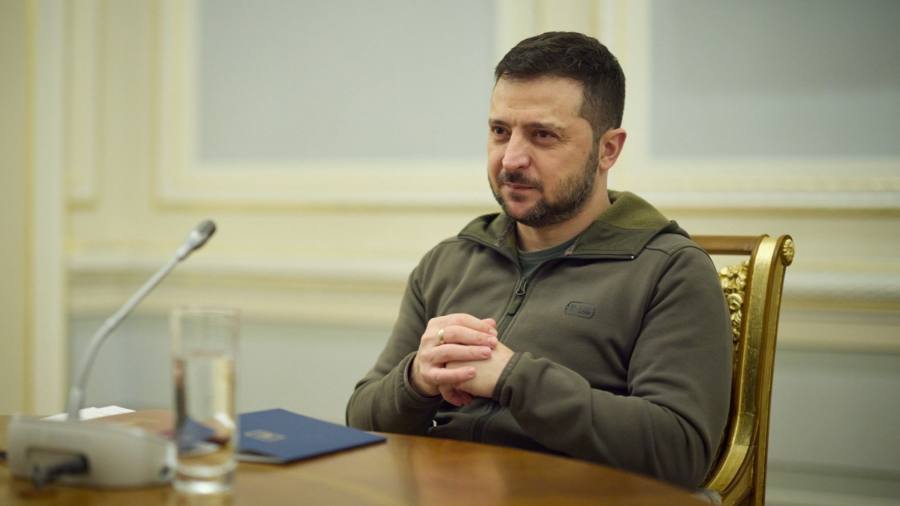[ad_1]
The writer is an FT contributing editor, the chair of the Centre for Liberal Strategies, Sofia, and fellow at IWM Vienna
The conventional wisdom is that wars end in negotiations. But they often end or freeze at the ballot box. This is where America’s war in Vietnam ended, this is where the French war in Algeria ended and it was with Slobodan Milosevic’s defeat at the ballot box in 2000 that the wars in former Yugoslavia really came to an end.
Today, the war in Ukraine is taking place in the shadow of critical elections scheduled for 2024. Elections in Russia, Ukraine, Taiwan and the US will be crucial in shaping the prosecution of the war in 2023. The outcome of these votes could define the shape of the next international order.
In March 2024, presidential elections will be held in Russia and Ukraine. It takes a lot of imagination to see Vladimir Putin losing elections organised for the single reason that he will win them. But saddled with his failing “special operation”, he has every reason to worry that in the event of military defeat, or a conflict frozen to his disadvantage, he will face opposition not just from the few liberals left in the country but also from a mobilised and credible nationalist right.
This hasn’t happened in his rule of more than two decades, but an election campaign combined with failures on the front could trigger the anti-Putin moment Europeans and Americans have long awaited — although it is very unlikely this will be Russia’s freedom moment.
Ukraine’s polls will also profoundly affect the strategic choices that President Volodymyr Zelenskyy makes in 2023. They will make it impossible for him to accept any territorial compromise, lest he lose the vote. Postponing the election is not an option.
But for Zelenskyy, conducting elections in a time of war with a majority of the population exiled or internally displaced will be a monumental logistical challenge. Organising free and fair elections will be of paramount importance in reinforcing Ukraine’s image as a democratic David struggling against an autocratic Russian Goliath.
In the elections cocktail mixed for 2024, Taiwan’s presidential polls might also become a wild card influencing the Russia-Ukraine war dynamic. Fear of a nationalist victory in these may affect Beijing’s strategy of “unification”. It is still unknown what lesson President Xi Jinping has drawn from the Russian invasion. Has he concluded that Putin was wrong to start the war or that he started it too late?
The need to keep the Americans away could also persuade the Chinese government, already humiliated by its failure to deal with the Covid-19 pandemic, to increase its support for Moscow in the hope of keeping the US trapped in a European conflict.
The US presidential elections and, to a much smaller degree, elections for the European parliament will also have a direct impact on the conduct of the war. The US presidential election may be more decisive for the war’s outcome than any military operation on the ground. Ukrainians cannot resist Putin’s killing machine if the Americans and Europeans decide to cut their considerable military and financial support.
In this sense, Ukrainians have reason to fear that the Democrats may lose the presidency, as US support for their war effort could soften depending on which Republican wins. For Democrats and their European allies alike, success for Putin in Donbas or Nato’s direct involvement in the war might dramatically influence who will be the next US president and who will be elected to the European parliament.
Either Russian success on the frontline or a great Nato involvement in the conflict could tip the balance of the American presidency towards the Republicans. The last thing Democrats and their European allies need is for voters to blame the White House for launching a third world war. In order for Joe Biden and his European allies to win their elections, it is critically important that the Ukrainians are still winning on the battlefield.
We know how economic interdependence and the proliferation of nuclear weapons have changed the nature of modern war. What we are still blind to is how the upcoming cluster of elections could also change the nature of the war in Ukraine, particularly in a moment of global hyper-polarisation.
The moral? To win wars in the 21st century, it is not always enough to get the upper hand on the battlefield. You also need to win elections, and not in your own country alone.
[ad_2]
Image and article originally from www.ft.com. Read the original article here.

